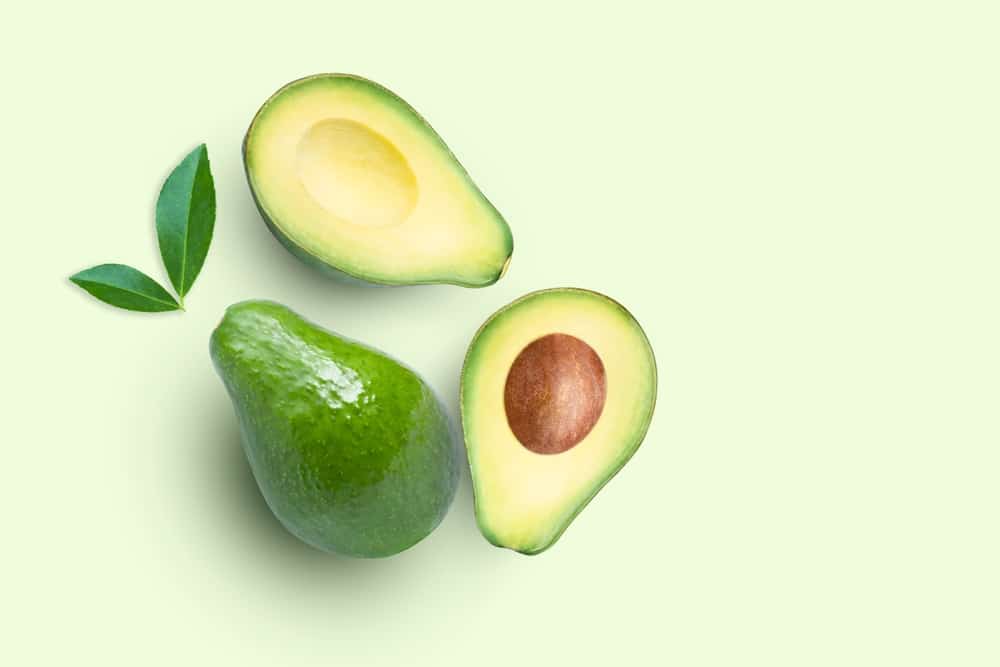Have you heard the news? Monash University has published a research update on the FODMAP content of avocados. The good news is that the low FODMAP serving size for avocado has increased. The surprising news is that avocado doesn’t actually contain sorbitol, instead it contains a different type of polyol sugar (polyols are the ‘P’ in the FODMAP acronym). Keep reading to find out what this research update means for you.
Why was avocado retested for FODMAPs?
The composition of foods can change over time due to growing conditions, environmental factors, the variety/breeding of the food the manufacturers grow, as well as how the food is stored and ripened (1). Due to these reasons, Monash University sometimes revisits a particular food and tests it again to see if the FODMAP levels have changed.
What FODMAP levels changed for avocado?
When Monash University retested avocado, they discovered that avocado isn’t high FODMAP for sorbitol but instead contains a different polyol called ‘perseitol’. The Monash University research team think that perseitol might trigger gut symptoms in a similar way to sorbitol, so it would still be considered a FODMAP carbohydrate (2).
Before we go any further, we do want to clear up some confusion about the Monash University FODMAP Diet App. When you look at the app listing for avocado you will notice that the traffic light system still states that avocado has amber and red levels for sorbitol, however there is an * symbol next to the serving size amount. If you look at the bottom of the app screen for avocado you will see a small note that explains that avocado has a unique sugar polyol called perseitol, which might trigger symptoms in people who are sensitive to polyols like sorbitol.
Has the low FODMAP serving size for avocado changed?
The good news is that despite the discovery of perseitol, the low FODMAP serving size for avocado has increased. Previously, the low FODMAP serving size was 30g (1oz) and that has increased to 60g (2.1oz) or about 3 tablespoons (these are 20ml tablespoons). Larger servings still become moderate to high FODMAP for perseitol – you can find more information in the Monash University FODMAP Diet App.
Does the new serving size change any of the A Little Bit Yummy recipes?
No, the new serving size doesn’t change any of our recipes. We have always been conservative when developing our recipes and have previously only used two tablespoons of avocado per serving. This means our recipes don’t need to be updated based on the new guidelines and you can continue eating them confidently. You can find a range of yummy low FODMAP recipes containing avocado in our premium Recipe Club.
Are you ready to take control of your gut symptoms?
No thanks, my gut is perfect.
If I used avocado for my sorbitol challenge – what should I do now?
If you are happily eating a range of sorbitol-containing foods without any issues, then you don’t need to change anything.
If you experienced symptoms while doing a sorbitol challenge using avocado, then we’d suggest you revisit your sorbitol challenge and try a different challenge food like fresh apricots, blackberries, lychees, yellow peach, or sweet corn. Check the Monash University FODMAP Diet App for information on these foods. If you need help reintroducing FODMAPs, then check out our FODMAP Made Easy Program.
Should I challenge avocado separately before returning it to my diet?
If you love avocado, you can do a dedicated avocado challenge during the reintroduction phase to see how you tolerate it.
Here’s how we’d do the challenge:
Day 1: 4 tablespoons of avocado (about 1/2 a medium)
Day 2: 5 tablespoons of avocado
Day 3: 8 tablespoons of avocado (about 1 medium avocado)
Final Thoughts
Avocado can still be on the menu while you are on the low FODMAP diet. If you are in the first phase of the low FODMAP diet, you can enjoy a three tablespoon serving per meal. Avoid larger servings of avocado until you are ready to test your tolerance to perseitol. Hopefully, you’ll discover you can enjoy much larger servings without triggering symptoms.
References:
1. Monash FODMAP Team. Retested Foods – Why The FODMAP Content Might Change. Monash University Low FODMAP Blog. Retrieved from: https://www.monashfodmap.com/blog/retested-foods-why-fodmap-content-might-change/ Retrieved on: 2024-03-06
2. Monash FODMAP Team. Avocado & FODMAPs – A Smashing New Discovery. Monash University Low FODMAP Blog. Retrieved from: https://www.monashfodmap.com/blog/retested-foods-why-fodmap-content-might-change/ Retrieved on: 2024-03-06
Photo credit: NIKCOA/Shutterstock












Leave a Reply